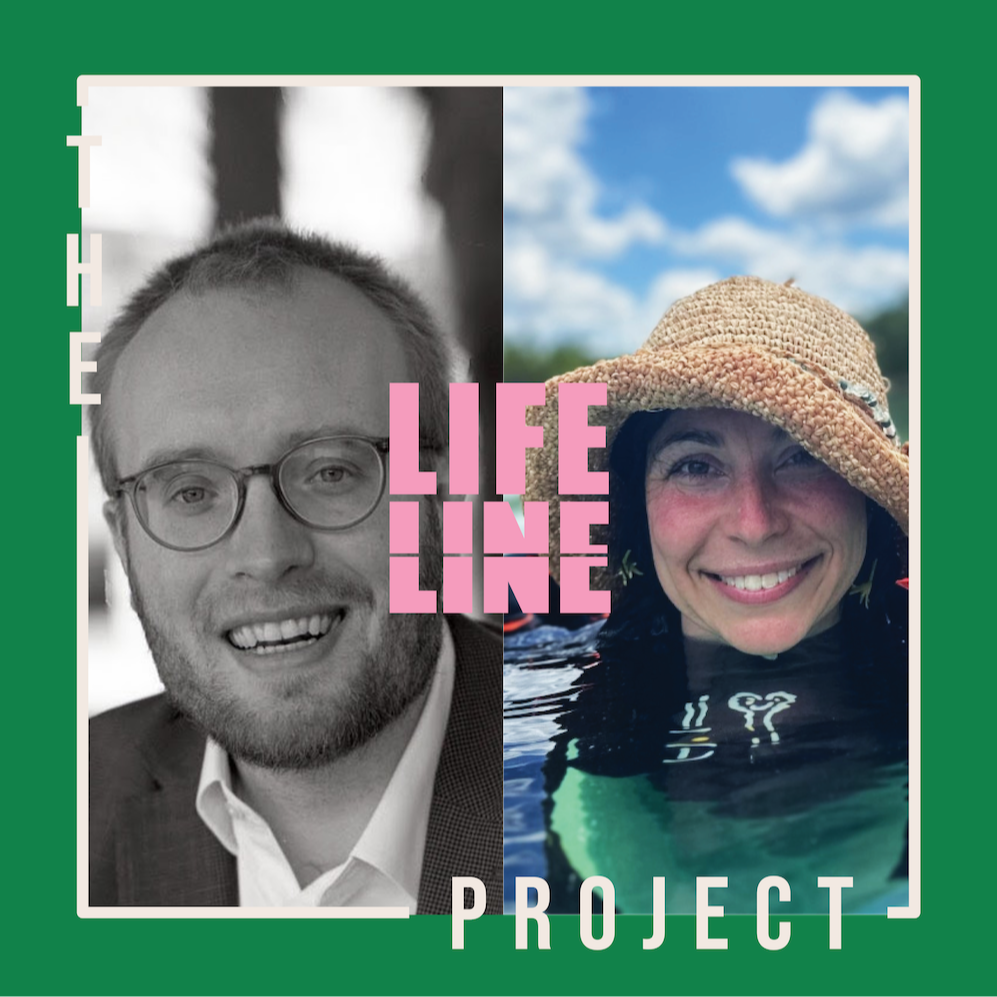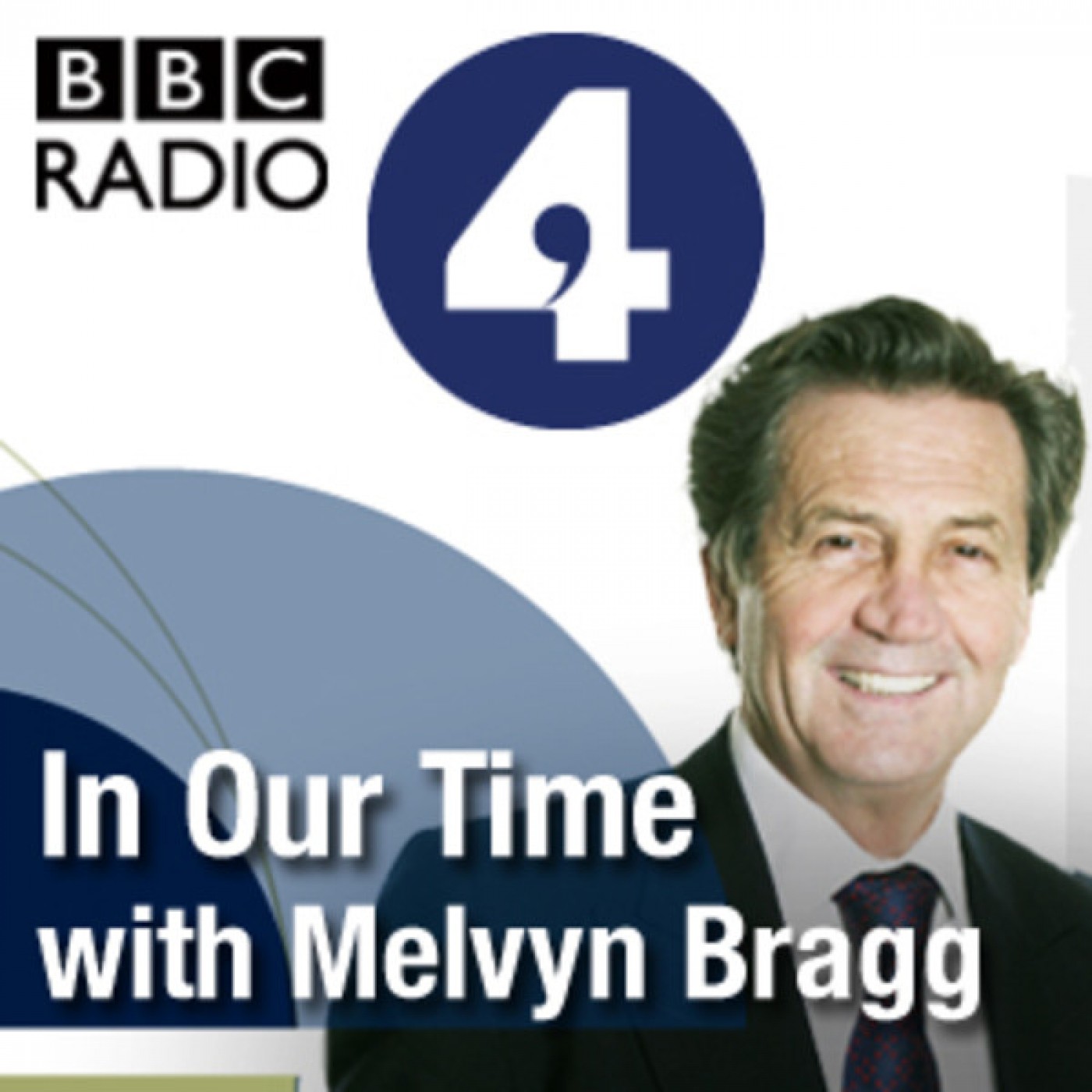Shows
 The Lifeline ProjectThe Drugs Are In The WaterHow do you fit the nearly hundred year history of antimicrobials in agriculture and the environment into one song? Buckle up.
Talking about the antibiotic emergency under the banner of One Health means not only taking in the history of drugs in medicine but also the wild ways they have been used in animals and their effect on the environment. Helping us navigate this huge topic are 'bugs and drugs' historian Dr Claas Kirchhelle and AMR expert and vital friend to the show, Dr CarriAyne Jones Parr.
Lifeline is on in New York i...2024-08-2144 min
The Lifeline ProjectThe Drugs Are In The WaterHow do you fit the nearly hundred year history of antimicrobials in agriculture and the environment into one song? Buckle up.
Talking about the antibiotic emergency under the banner of One Health means not only taking in the history of drugs in medicine but also the wild ways they have been used in animals and their effect on the environment. Helping us navigate this huge topic are 'bugs and drugs' historian Dr Claas Kirchhelle and AMR expert and vital friend to the show, Dr CarriAyne Jones Parr.
Lifeline is on in New York i...2024-08-2144 min Big Picture ScienceNot Just a PhageWe’re hurtling towards a post-antibiotic world, as the overuse of antibiotics has given rise to dangerous drug-resistant bacteria. Can we fight back using viruses as weapons? An obscure medical therapy uses certain viruses called bacteriophages to treat infection. For a century attempts to turn phage-therapy into a life-saving treatment have faltered, but today there’s renewed interest in this approach. Can we use phages to forestall the antibiotic crisis? Guests:Claas Kirchhelle – Medical historian at the University College, DublinTom Ireland – Journalist, editor of The Biologist and author of “The Good Virus: The Amazing S...2024-08-1254 min
Big Picture ScienceNot Just a PhageWe’re hurtling towards a post-antibiotic world, as the overuse of antibiotics has given rise to dangerous drug-resistant bacteria. Can we fight back using viruses as weapons? An obscure medical therapy uses certain viruses called bacteriophages to treat infection. For a century attempts to turn phage-therapy into a life-saving treatment have faltered, but today there’s renewed interest in this approach. Can we use phages to forestall the antibiotic crisis? Guests:Claas Kirchhelle – Medical historian at the University College, DublinTom Ireland – Journalist, editor of The Biologist and author of “The Good Virus: The Amazing S...2024-08-1254 min In Our Time: ScienceBacteriophagesMelvyn Bragg and guests discuss the most abundant lifeform on Earth: the viruses that 'eat' bacteria. Early in the 20th century, scientists noticed that something in their Petri dishes was making bacteria disappear and they called these bacteriophages, things that eat bacteria. From studying these phages, it soon became clear that they offered countless real or potential benefits for understanding our world, from the tracking of diseases to helping unlock the secrets of DNA to treatments for long term bacterial infections. With further research, they could be an answer to the growing problem of antibiotic resistance.With 2024-08-0150 min
In Our Time: ScienceBacteriophagesMelvyn Bragg and guests discuss the most abundant lifeform on Earth: the viruses that 'eat' bacteria. Early in the 20th century, scientists noticed that something in their Petri dishes was making bacteria disappear and they called these bacteriophages, things that eat bacteria. From studying these phages, it soon became clear that they offered countless real or potential benefits for understanding our world, from the tracking of diseases to helping unlock the secrets of DNA to treatments for long term bacterial infections. With further research, they could be an answer to the growing problem of antibiotic resistance.With 2024-08-0150 min In Our TimeBacteriophagesMelvyn Bragg and guests discuss the most abundant lifeform on Earth: the viruses that 'eat' bacteria. Early in the 20th century, scientists noticed that something in their Petri dishes was making bacteria disappear and they called these bacteriophages, things that eat bacteria. From studying these phages, it soon became clear that they offered countless real or potential benefits for understanding our world, from the tracking of diseases to helping unlock the secrets of DNA to treatments for long term bacterial infections. With further research, they could be an answer to the growing problem of antibiotic resistance.With 2024-08-0150 min
In Our TimeBacteriophagesMelvyn Bragg and guests discuss the most abundant lifeform on Earth: the viruses that 'eat' bacteria. Early in the 20th century, scientists noticed that something in their Petri dishes was making bacteria disappear and they called these bacteriophages, things that eat bacteria. From studying these phages, it soon became clear that they offered countless real or potential benefits for understanding our world, from the tracking of diseases to helping unlock the secrets of DNA to treatments for long term bacterial infections. With further research, they could be an answer to the growing problem of antibiotic resistance.With 2024-08-0150 min In Our Time With Melvyn BraggBacteriophagesMelvyn Bragg and guests discuss the most abundant lifeform on Earth: the viruses that 'eat' bacteria. Early in the 20th century, scientists noticed that something in their Petri dishes was making bacteria disappear and they called these bacteriophages, things that eat bacteria. From studying these phages, it soon became clear that they offered countless real or potential benefits for understanding our world, from the tracking of diseases to helping unlock the secrets of DNA to treatments for long term bacterial infections. With further research, they could be an answer to the growing problem of antibiotic resistance.With Martha Clokie
...2024-08-0152 min
In Our Time With Melvyn BraggBacteriophagesMelvyn Bragg and guests discuss the most abundant lifeform on Earth: the viruses that 'eat' bacteria. Early in the 20th century, scientists noticed that something in their Petri dishes was making bacteria disappear and they called these bacteriophages, things that eat bacteria. From studying these phages, it soon became clear that they offered countless real or potential benefits for understanding our world, from the tracking of diseases to helping unlock the secrets of DNA to treatments for long term bacterial infections. With further research, they could be an answer to the growing problem of antibiotic resistance.With Martha Clokie
...2024-08-0152 min Microbe TalkBehind the lecture with Dr Claas Kirchhelle Dr Claas Kirchhelle from University College Dublin will be giving the Hot Topic Lecture: "Faecal Flows – a very short history of microbiology, sewers, and Britain's rivers (ca.1850-2023)" at this years Annual Conference. Clare spoke to Claas to find out how he's feeling ahead of his lecture and to pick his brain about his intriguing research area. If you're at Annual Conference this year, you can catch Claas' Hot topic Lecture at 8:45 on Thursday 11 April. Alternatively, Claas' lecture will be available online after Annual Conference.Music by Denys Kyshchuk from Pixabay You can dow...2024-04-0642 min
Microbe TalkBehind the lecture with Dr Claas Kirchhelle Dr Claas Kirchhelle from University College Dublin will be giving the Hot Topic Lecture: "Faecal Flows – a very short history of microbiology, sewers, and Britain's rivers (ca.1850-2023)" at this years Annual Conference. Clare spoke to Claas to find out how he's feeling ahead of his lecture and to pick his brain about his intriguing research area. If you're at Annual Conference this year, you can catch Claas' Hot topic Lecture at 8:45 on Thursday 11 April. Alternatively, Claas' lecture will be available online after Annual Conference.Music by Denys Kyshchuk from Pixabay You can dow...2024-04-0642 min The AMR StudioEp 52: Jakob Altgärde, an ID physician. Antibiotic combinations for gram positives. The Antibiocene.Welcome to a new episode, albeit the slight delay! Tune in this October to listen to Elin’s first interview ever! She had the chance to sit down and talk to Jakob Altgärde, infectious diseases physician with experience in hospital work around infections and resistance in both Sweden and Nepal. With him, we learn how an ID physician works day-to-day, and the main differences between Sweden and Nepal when it comes to his work and AMR.
In the news section, we first talk about a recent massive high-throughput screening done for drug combinations on gram positives (Bacillus, Staphylococcus & Streptococcus), and...2023-10-1655 min
The AMR StudioEp 52: Jakob Altgärde, an ID physician. Antibiotic combinations for gram positives. The Antibiocene.Welcome to a new episode, albeit the slight delay! Tune in this October to listen to Elin’s first interview ever! She had the chance to sit down and talk to Jakob Altgärde, infectious diseases physician with experience in hospital work around infections and resistance in both Sweden and Nepal. With him, we learn how an ID physician works day-to-day, and the main differences between Sweden and Nepal when it comes to his work and AMR.
In the news section, we first talk about a recent massive high-throughput screening done for drug combinations on gram positives (Bacillus, Staphylococcus & Streptococcus), and...2023-10-1655 min Collecting COVID: Oral HistoriesDr Claas KirchhelleGeorgina Ferry interviews Claas Kirchhelle, former Honorary Fellow in Vaccine History (Oxford Vaccine Group/Oxford Martin School), 22 March 2023. Topics discussed include (00:00:48) early interest in history, studies in Munich, study of the environment and contemporary history, research into antibiotics, master's at the University of Chicago, post at Oxford and pivot to history of medicine; (00:02:39) long perspective, boundaries between policy and history, work at the Oxford Martin School; (00:04:55) research methods, including ethnographic methods, navigating archives sources, meaning making and sociological methods, witnesses to contemporary events and grey knowledge; (00:08:44) first awareness of COVID-19, including attendance at a typhoid conference in Dhaka, flu-like illness; (00:11:07...2023-08-0151 min
Collecting COVID: Oral HistoriesDr Claas KirchhelleGeorgina Ferry interviews Claas Kirchhelle, former Honorary Fellow in Vaccine History (Oxford Vaccine Group/Oxford Martin School), 22 March 2023. Topics discussed include (00:00:48) early interest in history, studies in Munich, study of the environment and contemporary history, research into antibiotics, master's at the University of Chicago, post at Oxford and pivot to history of medicine; (00:02:39) long perspective, boundaries between policy and history, work at the Oxford Martin School; (00:04:55) research methods, including ethnographic methods, navigating archives sources, meaning making and sociological methods, witnesses to contemporary events and grey knowledge; (00:08:44) first awareness of COVID-19, including attendance at a typhoid conference in Dhaka, flu-like illness; (00:11:07...2023-08-0151 min Collecting COVID: Oral HistoriesDr Samantha VanderslottGeorgina Ferry interviews Samantha Vanderslott, University Research Lecturer (Oxford Vaccine Group), 18 March 2022. Topics discussed include (00:00:35) SV's early studies, undergraduate degree in Economics and International Development, interest in politics and governance with a Masters undertaken at Oxford, work for two years with the UK Government (Business, Innovation and Skills), interest in research and PhD at UCL (University College London) particularly Sociology of Science with research topic of 'Neglected Tropical Diseases,' and later work at Oxford with the Oxford Vaccine Group; (00:05:30) pre-pandemic work including the Collective Responsibility for Infectious Disease programme, including interdisciplinary research, individual and collective responsibility, work on typhoid; (00:11:20...2022-11-021h 19
Collecting COVID: Oral HistoriesDr Samantha VanderslottGeorgina Ferry interviews Samantha Vanderslott, University Research Lecturer (Oxford Vaccine Group), 18 March 2022. Topics discussed include (00:00:35) SV's early studies, undergraduate degree in Economics and International Development, interest in politics and governance with a Masters undertaken at Oxford, work for two years with the UK Government (Business, Innovation and Skills), interest in research and PhD at UCL (University College London) particularly Sociology of Science with research topic of 'Neglected Tropical Diseases,' and later work at Oxford with the Oxford Vaccine Group; (00:05:30) pre-pandemic work including the Collective Responsibility for Infectious Disease programme, including interdisciplinary research, individual and collective responsibility, work on typhoid; (00:11:20...2022-11-021h 19 Infectious HistoriansEpisode 90 - Public Health Labs in History and during Covid with Claas Kirchhelle and Samantha VanderslottClaas Kirchhelle (University College Dublin) and Samantha Vanderslott (Oxford University) talk to Merle and Lee about the development and history of public health laboratories and how they worked (or didn’t) during Covid. After first discussing what a public health lab is and how they work, they speak about when they were created in a few countries around the world and how they have developed historically. Claas and Sam note the role of public and private labs together and the key role of Swine Flu in 2009 in how this shaped public health then and during Covid. They also point ou...2022-05-121h 22
Infectious HistoriansEpisode 90 - Public Health Labs in History and during Covid with Claas Kirchhelle and Samantha VanderslottClaas Kirchhelle (University College Dublin) and Samantha Vanderslott (Oxford University) talk to Merle and Lee about the development and history of public health laboratories and how they worked (or didn’t) during Covid. After first discussing what a public health lab is and how they work, they speak about when they were created in a few countries around the world and how they have developed historically. Claas and Sam note the role of public and private labs together and the key role of Swine Flu in 2009 in how this shaped public health then and during Covid. They also point ou...2022-05-121h 22 COVIDCallsEP #486 - 3.16.2022 - Restoring Memory: Vaccination in the COVID EraMy name is Jacob Steere-Williams, I am a Historian of Epidemic Disease and Public Health at the College of Charleston. I’ll be guest hosting a series of episodes for this special program, but you can catch most of them with the regular host and founder of COVID-Calls, Scott Knowles.
My guests today:
Nadja Durbach is Professor of History at the University of Utah. She received her PhD from the Johns Hopkins University and is the author of three books on the history of the body in Modern Britain: Bodily Matters: The Anti-Vaccination Movement in Eng...2022-03-281h 03
COVIDCallsEP #486 - 3.16.2022 - Restoring Memory: Vaccination in the COVID EraMy name is Jacob Steere-Williams, I am a Historian of Epidemic Disease and Public Health at the College of Charleston. I’ll be guest hosting a series of episodes for this special program, but you can catch most of them with the regular host and founder of COVID-Calls, Scott Knowles.
My guests today:
Nadja Durbach is Professor of History at the University of Utah. She received her PhD from the Johns Hopkins University and is the author of three books on the history of the body in Modern Britain: Bodily Matters: The Anti-Vaccination Movement in Eng...2022-03-281h 03 Climate-Proof Food PodcastEpisode 8: Agriculture’s Contribution to Antimicrobial Resistance (AMR) with Dr Claas KirchhelleAntimicrobial resistance (AMR) has been labeled by the World Health Organisation (WHO) as one of the top 10 global public health threats facing humanity. Driven by misuse and overuse of antimicrobials, where 76% of global antibiotics are used in agriculture. AMR results in bacteria, viruses, parasites, and fungi no longer responding to the medicines we have to treat infections and is making it increasingly difficult to reduce the spread of disease. What has driven AMR and what are the potential harms of the 'impending apocalypse' narrative of antimicrobial resistance? We have done things a little differently for this episode o...2021-05-041h 07
Climate-Proof Food PodcastEpisode 8: Agriculture’s Contribution to Antimicrobial Resistance (AMR) with Dr Claas KirchhelleAntimicrobial resistance (AMR) has been labeled by the World Health Organisation (WHO) as one of the top 10 global public health threats facing humanity. Driven by misuse and overuse of antimicrobials, where 76% of global antibiotics are used in agriculture. AMR results in bacteria, viruses, parasites, and fungi no longer responding to the medicines we have to treat infections and is making it increasingly difficult to reduce the spread of disease. What has driven AMR and what are the potential harms of the 'impending apocalypse' narrative of antimicrobial resistance? We have done things a little differently for this episode o...2021-05-041h 07 The AMR StudioEp 13. Claas Kirchhelle & a historian's role in AMR. Review of progress on Antimicrobial Resistance.Welcome to our first anniversary episode! Turning 1 with you by featuring the interview we did with Dr. Claas Kirchhelle, a historian at the University of Oxford. Tune in to get a peek into how historians like him contribute to the study and communication of AMR. Also, we briefly cover the recent publication looking into the progress done on the gobal Antimicrobial Resistance work, after the recommendations published back in 2015. A lot has been done, but a lot is still needed! Check relevant links and material at www.uac.uu.se/the-amr-studio/episode13/. Follow our updates on twitter on www.twitter...2019-11-0443 min
The AMR StudioEp 13. Claas Kirchhelle & a historian's role in AMR. Review of progress on Antimicrobial Resistance.Welcome to our first anniversary episode! Turning 1 with you by featuring the interview we did with Dr. Claas Kirchhelle, a historian at the University of Oxford. Tune in to get a peek into how historians like him contribute to the study and communication of AMR. Also, we briefly cover the recent publication looking into the progress done on the gobal Antimicrobial Resistance work, after the recommendations published back in 2015. A lot has been done, but a lot is still needed! Check relevant links and material at www.uac.uu.se/the-amr-studio/episode13/. Follow our updates on twitter on www.twitter...2019-11-0443 min Eat This PodcastAntibiotics and agriculture
In the past year or so there has been a slew of high-level meetings pointing to antibiotic resistance as a growing threat to human well-being. But then, resistance was always an inevitable, Darwinian consequence of antibiotic use. Well before penicillin was widely available, Ernst Chain, who went on to win a Nobel Prize for his work on penicillin, noted that some bacteria were capable of neutralising the antibiotic.
What is new about the recent pronouncements and decisions is that the use of antibiotics in agriculture is being recognised, somewhat belatedly, as a major source of...2017-10-0922 min
Eat This PodcastAntibiotics and agriculture
In the past year or so there has been a slew of high-level meetings pointing to antibiotic resistance as a growing threat to human well-being. But then, resistance was always an inevitable, Darwinian consequence of antibiotic use. Well before penicillin was widely available, Ernst Chain, who went on to win a Nobel Prize for his work on penicillin, noted that some bacteria were capable of neutralising the antibiotic.
What is new about the recent pronouncements and decisions is that the use of antibiotics in agriculture is being recognised, somewhat belatedly, as a major source of...2017-10-0922 min